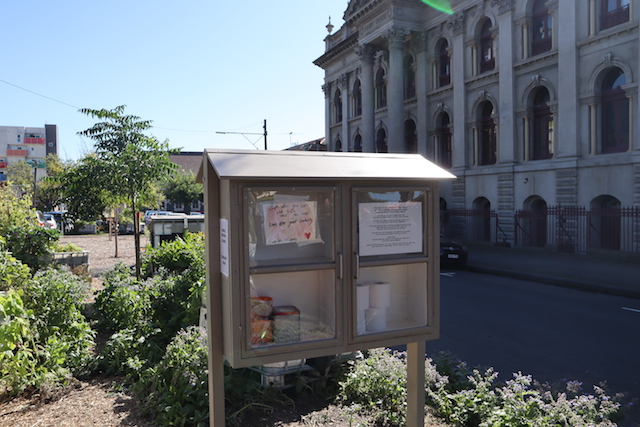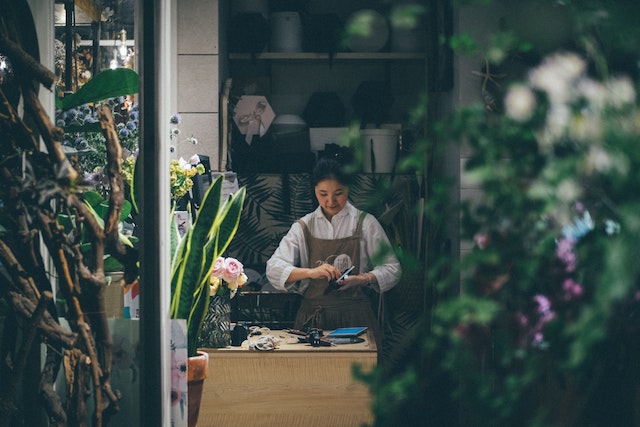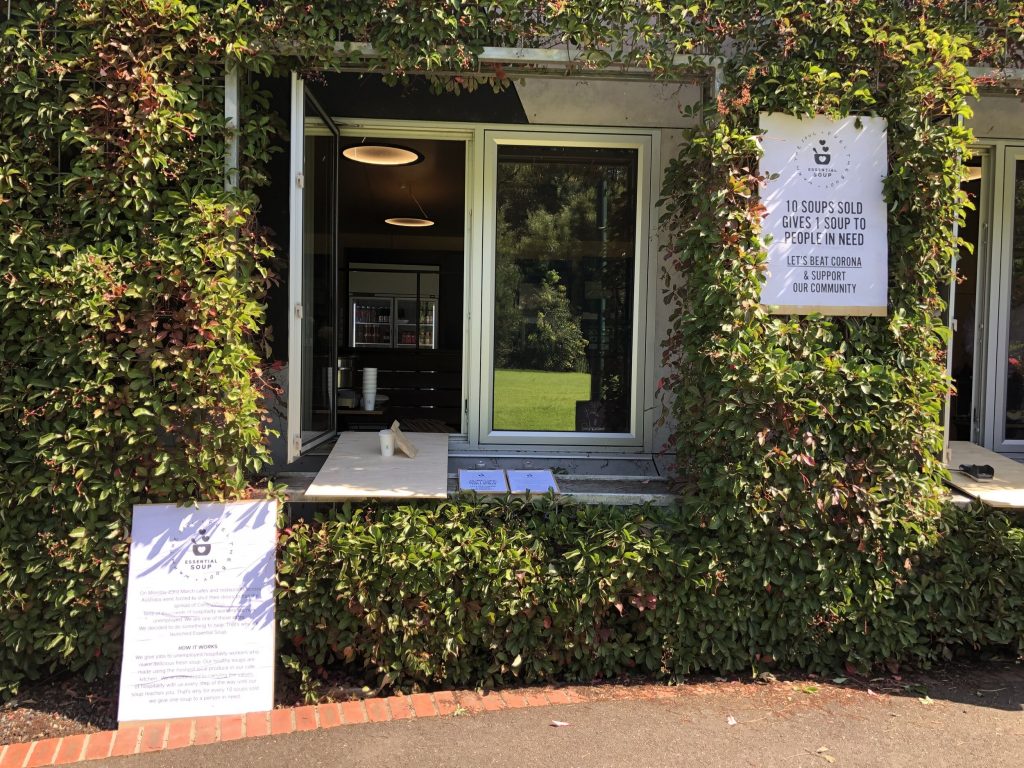Unlock the Magic in Your Story Now
Get the Free 20 questions to Ask Before Launching Your Idea workbook when you sign up for occasional updates.
Get the Free 20 questions to Ask Before Launching Your Idea workbook when you sign up for occasional updates.
In Answer To Your Question
filed in Strategy, Success, Worldview

We like to ask for advice. It’s human to investigate all the angles—to seek the opinions of others. And yet in doing so, we can forget to reflect on our insights and assumptions.
We often forget to check in with our beliefs before considering what someone else thinks.
What if before sought advice, we reflected on our thoughts first?
What wisdom might we find in our own hearts?
What do I think? How do I feel? These are powerful questions.
Image by Pablo Andrés Rivero
Share this article
Helpful Conversations

Over the past few weeks, my inbox has filled with emails from organisations I’d forgotten I’d ever had contact with. I must have signed up to an email list or bought something from them many years ago, but it’s so far back, I can’t remember why.
We’re all still trying to work out how to be useful to the people we serve in this moment. We want to help.
But the thing to remember about helpful conversations is that timing matters. Being helpful is not just about what you say or how you say it, it’s also about when you say it.
That doesn’t mean we need to stop talking, but it might just mean we need to be twice as good at listening, especially now.
Image by Fezbot
Share this article
Lessons From A Low-Touch World
filed in Meaningful Work, Worldview

Technology presents opportunities for efficiency and scale. And for the last century, conventional wisdom equated progress with efficiency—doing more with less friction.
We’ve worked hard to build systems that scale. Frictionless innovations for a low-touch world. Now, we’re beginning to realise that what we value most are the irreplaceable high-touch interactions that don’t scale.
It’s hard to replace the elation of a high five from a coach.
We miss the skill of a great hairdresser and the face-to-face service of a dedicated bookstore.
The reassurance of stethoscope applied to a chest during a doctor’s examination can’t be replicated in a telehealth consultation.
Technology gives us the capability to scale, but what we’re discovering now is the price we would pay for living in a frictionless world, and the things that matter to us are those that don’t scale.
[HT to my friend and colleague Mark Dyck who inspired this post during a conversation in our small business mentorship group the Right Company this week.]
Image by Adrià Crehuet Cano
Share this article
Take What You Need
filed in Worldview

Not far from my house, outside an apartment building, next to the vegetable boxes, where residents are normally busy tending their gardens, there is a little library. You know, one of those where you can leave a book and take a book.
Now, someone has built a little pantry next to it. It’s stocked with donations of non-perishable food and personal care items that people might need.
The sign reads. Give what you can. Take what you need. Look after your community.
I took a photo so you could see it.
Anyway, that’s what I hope you will do with these blog posts. Take what you need.
After my last post, a reader emailed to say she found my call to be more productive problematic. Another, to say he was tired of people telling him what to do—which of course wasn’t my intention, but I take his point.
Far from inviting you to be productive or tell you what to do, I hope my post was an invitation to find small moments of gladness and hope in your day. Resourcefulness and resilience of your own making.
On Wednesday when I posted, I was glad I phoned my parents at 7 am (it was 10 pm in Dublin where they live). If my mother, aged 79, with a chronic lung condition, gets sick, she will die. No treatment will save her ailing lungs. She knows.
And yet, she is worried about getting to the post office in time to send a parcel for my husband’s birthday at the end of the month. But she planted geraniums that day, and I was glad about that too.
I was also glad that I went for a short walk in the park with my husband before sunrise.
Glad I published a blog post. Today I’m glad I am writing to you. Honestly, it’s hard to find any words, let alone the right ones in this moment.
This post might not be what you need to read today, but I do know there is someone else somewhere who needed it.
Please take what you need.
Share this article
Two Questions For Days Like These
filed in Meaningful Work, Worldview

Will we wake up in a few months and lament that we haven’t made more of this time in isolation?
The direct impact of current events is largely beyond our control. And yet it affects us indirectly, often in imperceptible ways. There are many things going on in the world that we can’t influence, but there is something we can do to minimise their indirect effects on our agency.
We have a choice.
We can allow time to trickle through our fingers as we refresh Twitter and binge-watch Netflix or we can do the things we’re glad to have done.
There are two questions we can ask ourselves at the end of each day.
What did I do today that I’m proud of?
What am I glad I did today?
We can mark time, without allowing this time to make its mark on us—and us on it.
Or we can try to do better each day.
Image by Edwin Hooper
Share this article
If I Were You
filed in Meaningful Work, Strategy, Success
 If I were you.
If I were you.
Four words it’s tempting to use when someone shares a problem.
Four words I’m trying to avoid using—because I am not you.
I don’t know what it’s like to sit with what you’re experiencing or feeling at this moment.
You have the wisdom of past experiences to draw on.
Ideas you haven’t yet articulated, even to yourself.
How many solutions could you generate if you reflected on what you want and what your next right step might be? Many more than if someone just told you exactly what to do.
Image by Burst
Share this article
Balancing Wants And Needs
filed in Meaningful Work, Strategy, Success

On a normal day, our local supermarket stocks fifty different kinds of pasta. Right now they’re stocking two. On a normal day, customers would complain bitterly about the lack of choice. Today they’re grateful to leave the shop with two boxes of a brand of penne they’ve never tried.
What we’re witnessing in real-time as we work together to keep ourselves and our communities safe, is a shift in priorities, for our customers, clients and us. We’re adapting. And as we do, there’s an opportunity to pay attention to what the people we serve want and need in this moment.
These skills we’re learning today will help us to be better innovators and creators, teachers and marketers, tomorrow.
What do the people you serve need now? What will they want in the future?
Image by Soroush Karimi
Share this article
What Can You Do Now?
 Julie has been running her local florist business for five years. She’s built up a reputation with the people in her suburb, who regularly pop in when they’re walking past to buy flowers and plants that brighten their homes and their lives.
Julie has been running her local florist business for five years. She’s built up a reputation with the people in her suburb, who regularly pop in when they’re walking past to buy flowers and plants that brighten their homes and their lives.
While new single bunch, online flower delivery services blossomed, Julie made the decision when she started to be a neighbourhood business. She wanted to serve a community of customers she knew by name. This strategy worked well for her, until now.
All the restaurants and cafés along her street have closed, and her customers have retreated indoors to self-isolate. The streets are eerily quiet. Nobody is popping in to buy flowers anymore. Julie’s strategy didn’t account for an event like this.
But she’s not ready to shut her doors. She wants to find a way to serve her customers. So she’s employed an extra driver and begun to offer free contactless delivery. Julie’s doing what she’s always done—what’s different is how she does it. Her strategy remains the same. It’s just her tactics that have to change for the moment.
What can you do now to keep doing what you’ve always done?
Image by Ellicia
Share this article
What Did You Do?
filed in Innovation, Meaningful Work, Strategy

A walk down my local café strip shows just how resourceful we can be when we’re in a tough spot. Because of world events and government guidelines around group gatherings, restaurants and cafes can no longer welcome diners into their premises. But they are quickly adapting.
Every café has come up with a solution. Many have changed to a takeaway menu, offering local delivery. Smith & Daughters partnered with their organic vegetable wholesaler to sell fresh produce. Ish, the local Indian restaurant has started a meal kit service.
And Kere Kere launched Essential Soup, to provide jobs to unemployed hospitality workers and nourishment to those in self-isolation.
Now is a time of uncertainty for many of us. A time when our plans and our usual routines have been upended and some of us have extra hours on our hands.
When this moment passes, we will look back at how we adapted. We’ll remember how we became more creative, resourceful and resilient. We’ll remind ourselves, and each other about what we did, how we pushed through and how we helped.
This time next year, how will you answer the question: What did you do?
Share this article
On Resourcefulness
filed in Strategy, Success, Worldview

When things don’t go according to plan.
Remember this isn’t the first time you’ve had to change course.
Make a list of all the other times you pushed through.
Remind yourself of the skills and strengths you previously called on in challenging times.
Tell yourself those stories today.
They will stand you in good stead as you work to change the things you can change.
Tomorrow and the day after.
Image by Neil Thomas